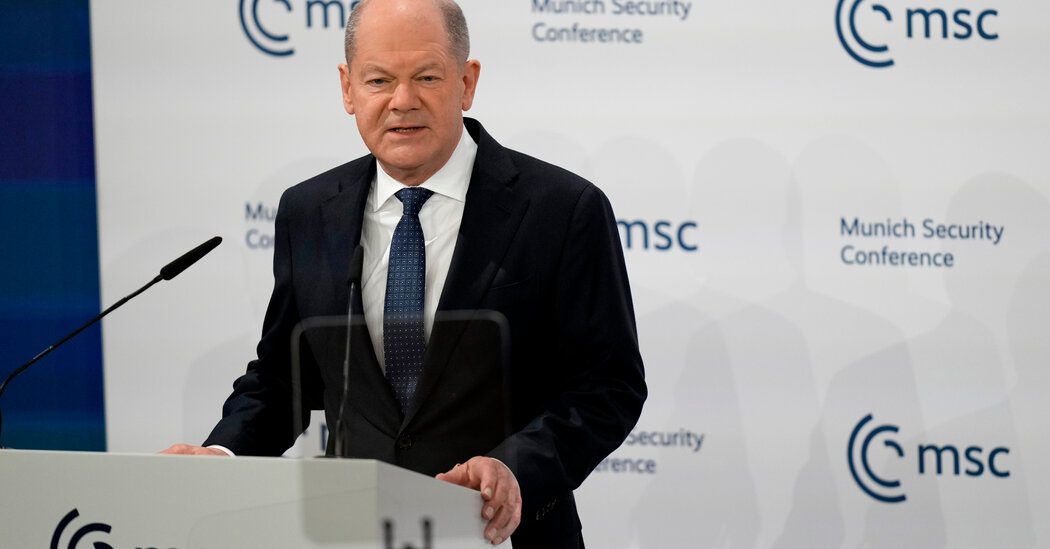

On Saturday, Chancellor Olaf Scholz of Germany criticized Vice President JD Vance for what he termed an unacceptable intrusion into Germany’s upcoming elections. This accusation arose after Vance suggested at the Munich Security Conference that German leaders reconsider their approach to coalition building, specifically by engaging with the hard-right Alternative for Germany (AfD) party, which Scholz accused of downplaying the historical atrocities of the Nazi regime.
Following Vance’s remarkable address to German officials, where he urged the dismantling of their “firewall” against the AfD, Scholz responded firmly, asserting that supporting the AfD contradicts Germany’s promise to prevent the rise of fascism which once led to the horrors of the Holocaust. “A commitment to ‘never again’ cannot coexist with backing the AfD,” he reaffirmed during his speech at the conference’s second day.
Scholz further condemned the AfD for undermining the significance of Nazi crimes, invoking the memory of the Dachau concentration camp, which Vance had visited just a day prior. He firmly stated that Germany will not entertain external suggestions on its democratic processes or be directed to collaborate with extremist parties.
“That type of interference is simply unacceptable among allies,” Scholz remarked, emphasizing that the future of Germany’s democracy is a matter for Germans to decide themselves.
Meanwhile, attendees of Vance’s speech anticipated discussions surrounding the Trump administration’s strategies for peace talks in Ukraine and NATO defense policies. On the same day, Ukrainian President Volodymyr Zelensky highlighted the ongoing conflict in Ukraine, underscoring the looming threat from Russia’s military and calling for Europeans to enhance their security, potentially through the formation of an “Army of Europe” to strengthen U.S. initiatives on the continent.








